Samsung Galaxy Watch 7 vs Galaxy Watch 6: Not much of an upgrade
We may earn a commission if you make a purchase from the links on this page.

Intro
The Galaxy Watch 7 brings some notable upgrades over its predecessor, the Galaxy Watch 6, but overall, the two models remain quite similar in terms of design and features. The Watch 7 introduces faster performance, double the storage, improved health tracking features, and the new Wear OS 5 platform, making it a worthy contender for those looking to improve their smartwatch experience.
However, despite these enhancements, battery life remains relatively unchanged, with both models offering similar battery capacities. While the Galaxy Watch 7 offers new features like dual-band GPS, a Race feature for athletes, and smarter sleep tracking, it may not be enough to sway Galaxy Watch 6 owners looking for a substantial upgrade.
In this article, we’ll dive into the main differences between the Galaxy Watch 6 and Galaxy Watch 7, exploring the key features that make the newer model stand out, and whether it’s worth the investment. If you’re considering an upgrade or are in the market for a new smartwatch, keep reading to discover which model suits your needs best.
In this article, we’ll dive into the main differences between the Galaxy Watch 6 and Galaxy Watch 7, exploring the key features that make the newer model stand out, and whether it’s worth the investment. If you’re considering an upgrade or are in the market for a new smartwatch, keep reading to discover which model suits your needs best.
Note: The Galaxy Watch 7 and Galaxy Watch 6 are exclusively compatible with Android phones and will not work with iPhones.
Also read:
Galaxy Watch 7 vs Galaxy Watch 6: Main differences
| Galaxy Watch 7 | Galaxy Watch 6 |
|---|---|
| Same 40mm, 44mm sizes | 40mm, 44mm sizes |
| Dimensions: 44mm: 44.4 x 44.4 x 9.7 mm, 33.8g 40mm: 40.4 x 40.4 x 9.7 mm, 28.8g | Dimensions: 44.4 x 42.8 x 9.0 mm, 33.3g 40.4 x 38.8 x 9.0 mm, 28.7g |
| Three times faster W1000 chip (3nm) | Older W930 chipset (5nm) |
| Double the storage, 32GB | 16GB storage |
| Same battery sizes 425mAh for 44mm 300mAh for 40mm | Same battery size |
| Enhanced BioActive sensor | Older version of the sensor |
| New Wear OS 5 platform | Wear OS 4 |
| Dual-band GPS | Single-band GPS |
| Suggeseted message replies on watch | - |
| Combine various exercise to create a Workout Routine | - |
| Race feature to compare your time against your previous workout | - |
| New sleep tracking algorithm | Old sleep tracking algorithm |
| ECG, Blood Pressure monitoring | ECG, Blood Pressure monitoring |
| New AGEs index | - |
Most notable here is the jump from a 5nm chip to a 3nm one. The Exynos W940 (which might be called W1000) should offer a nice boost to performance but also battery efficiency. The new chipset is said to be have 50% better efficiency and 30% faster performance compared to the older one, which would be a massive jump and visibly impact the user experience.
On top of the new processor, the new model is also said to get double the storage (32GB) and it might even get slightly more memory than its predecessor (4GB). This is all, presumably, to facilitate some of the new features related to AI.
Another difference to point out is the faster 15W charging on the newer model. Since the battery capacity is rumored to remain the same on the Galaxy Watch 7, this should mean less time on the charger before the watch gets to 100% compared to the Galaxy Watch 6.
On top of the new processor, the new model is also said to get double the storage (32GB) and it might even get slightly more memory than its predecessor (4GB). This is all, presumably, to facilitate some of the new features related to AI.
Another difference to point out is the faster 15W charging on the newer model. Since the battery capacity is rumored to remain the same on the Galaxy Watch 7, this should mean less time on the charger before the watch gets to 100% compared to the Galaxy Watch 6.
Table of Contents:
Design & Sizes
The Galaxy Watch 7 and Galaxy Watch 6 look nearly identical. They have the same round shape, two sizes of 40mm and 44mm, same pretty much everything.
Get the smaller 40mm model if you have a smaller wrist, while 44mm would look better on mid-size and large-sized wrists. We are glad Samsung keeps these two sizes, as we know a number of people who really appreciate having the smaller size (some companies only release one size).
There is no physical rotating bezel on either one, but you do have a digital simulation, so you can say you have a digital bezel to navigate the UI. Of course, nothing beats actual hardware, and we wish Samsung would have opted for that instead.
In terms of water protection, we have IP68 and ATM5 rating on the Galaxy Watch 7, and both this new model and the older one can be used for swimming of course. If you want to use your watch for diving, consider the Galaxy Watch 7 Ultra, which comes with an ATM10 rating.
Bands
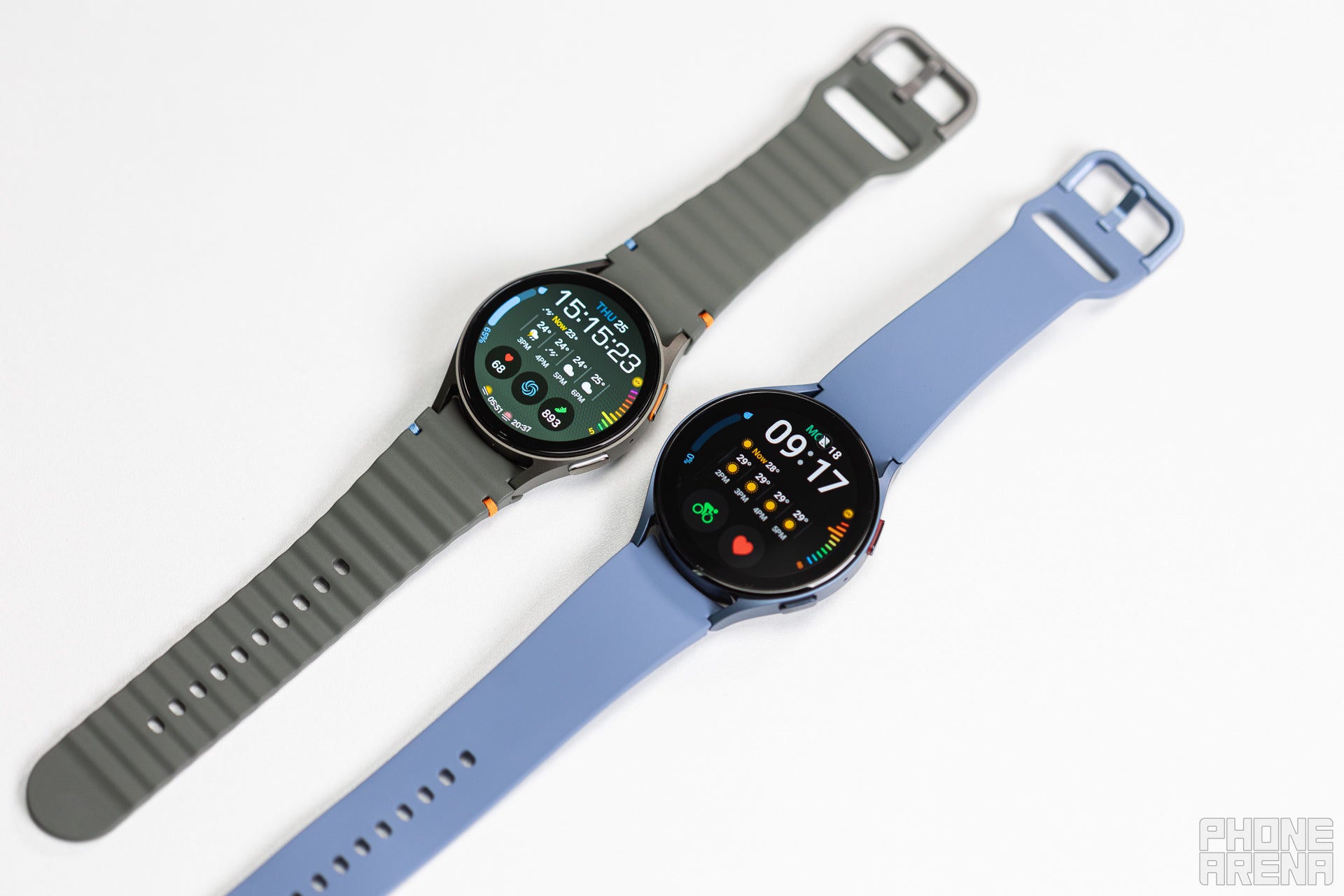
(Image by PhoneArena)
The Galaxy Watch 6 introduced a brand new way to swap bands, and Samsung achieved that while still allowing compatibility with the old-style Galaxy Watch bands. That said, we weren't too impressed with the new button-release system, as the button was somewhat small and hard to press.
What's more, the default silicone bands Samsung provided with the Galaxy Watch 6 were a bit too stiff and did not wrap around your hand that well, making them sit awkwardly on the wrist. Sadly, the issue persists with the Watch 7, although it at least comes with a selection of new, colorful bands, like the Ripple band.
Software & Features
The Galaxy Watch 7 arrived as the first smartwatch running Google's new Wear OS 5 platform, which is good to see.
However, there aren't any Galaxy AI magic features here as that seems to be reserved mostly for Samsung's phones and tablets for now.
Here's a breakdown of the notable new features:
- New "Energy Score" provides daily insights into your overall well-being.
- Personalized workouts: Galaxy AI will recommend personalized workout routines for seamless transitions between exercises, keeping your workouts engaging.
- Challenge yourself: Runners and cyclists can use the "Race" feature to compare their performance on favorite routes, adding a competitive edge to your training.
- Smarter sleep tracking: Look forward to more comprehensive sleep analytics with detailed "Sleep Score" metrics, helping you understand your sleep quality better.
- Advanced running metrics: Get insights into your running performance with features like "Aerobic Threshold (AT) / Anaerobic Threshold (AnT) Heart Rate Zone," allowing you to optimize your training zones.
Battery and Charging

The Galaxy Watch 7 and Watch 6 sensors and bottom side.
If there’s one area where the Galaxy Watch 6 left us wanting more, it’s battery life—and unfortunately, the Galaxy Watch 7 doesn’t bring much of an improvement. Both the 44mm and 40mm versions of the Watch 7 feature the same battery capacities as the Watch 6, with the 44mm model sporting a 425mAh cell and the 40mm model packing a 300mAh battery.
Samsung claims the Galaxy Watch 6 can last up to 40 hours with the always-on display turned off and 30 hours with it active. However, our testing revealed a different story. The Watch 6 lasted just 28 hours without the always-on display and 20 hours with it.
Despite the inclusion of a more power-efficient processor in the Galaxy Watch 7, battery life doesn’t show a significant improvement. The Watch 7 essentially matched the Watch 6’s performance, lasting 28 hours without the always-on display and 22 hours with it.
While the Watch 7’s slight improvement in battery life is appreciated, it still falls short of what we’d expect from Samsung’s flagship smartwatch. It leaves us hoping for better longevity in future iterations.
Samsung claims the Galaxy Watch 6 can last up to 40 hours with the always-on display turned off and 30 hours with it active. However, our testing revealed a different story. The Watch 6 lasted just 28 hours without the always-on display and 20 hours with it.
While the Watch 7’s slight improvement in battery life is appreciated, it still falls short of what we’d expect from Samsung’s flagship smartwatch. It leaves us hoping for better longevity in future iterations.
Models and Prices
Just like with the Galaxy Watch 6, the Galaxy Watch 7 will come in two sizes: 40mm and 44mm. Buyers will also have the option to choose between a Wi-Fi only and Wi-Fi + Cellular versions for both sizes.
And here are the Galaxy Watch 7 prices in the US:
- Galaxy Watch 7 (40mm): $300 Wi-Fi only; $350 Wi-Fi + Cellular (same as last year)
- Galaxy Watch 7 (44mm): $350 Wi-Fi only; $380 Wi-Fi + Cellular (same as last year)
Having cellular means you are able to use the watch without having your phone nearby, including for phone calls or anything that requires an internet connection. Keep in mind that even if you don't have support for cellular connectivity, you can still pay with your watch wirelessly at POS terminals.
Summary
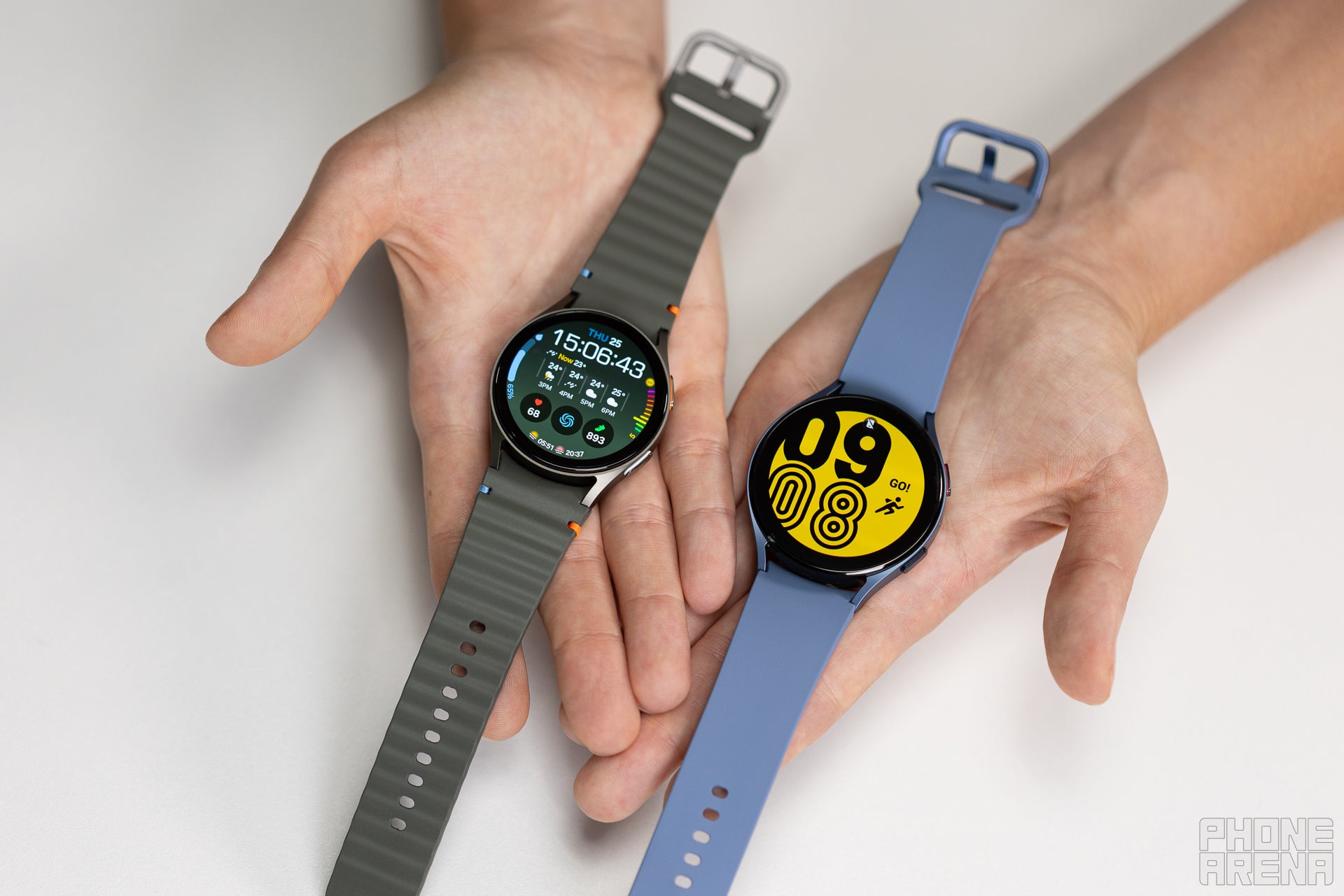
The Galaxy Watch 7 and Watch 6 are not too different, but there are some important upgrades on the inside.
The Galaxy Watch 7 is clearly all about refinement and better health and fitness tracking.
It's the same size and looks quite the same, so this is not about physical appearance, and prices haven't changed (which is a good thing considering that Samsung hiked the prices for its foldable phones).
Should you upgrade to the Galaxy Watch 7?
If you already own the Watch 6, we don't see a big reason to upgrade, honestly, but we do see a few upgrades that are very welcome. The dual-band GPS will be great for runners who live in big metros, and the new health, fitness and sleep tracking promises to be more accurate, which is really important. The faster processor is also nice, but honestly, we care more about battery life than having a faster chipset on a watch.
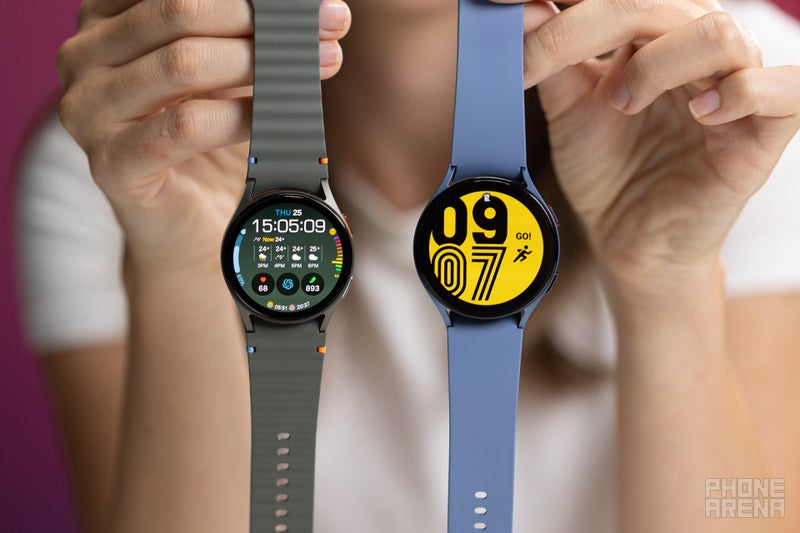
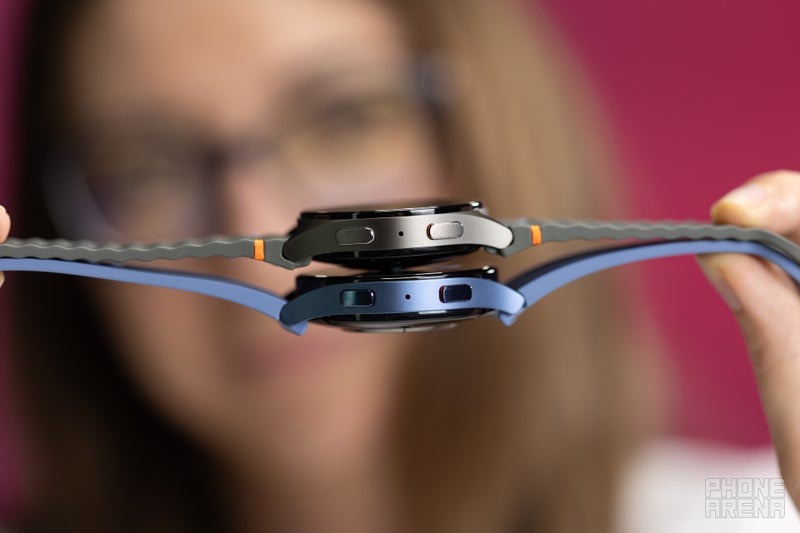
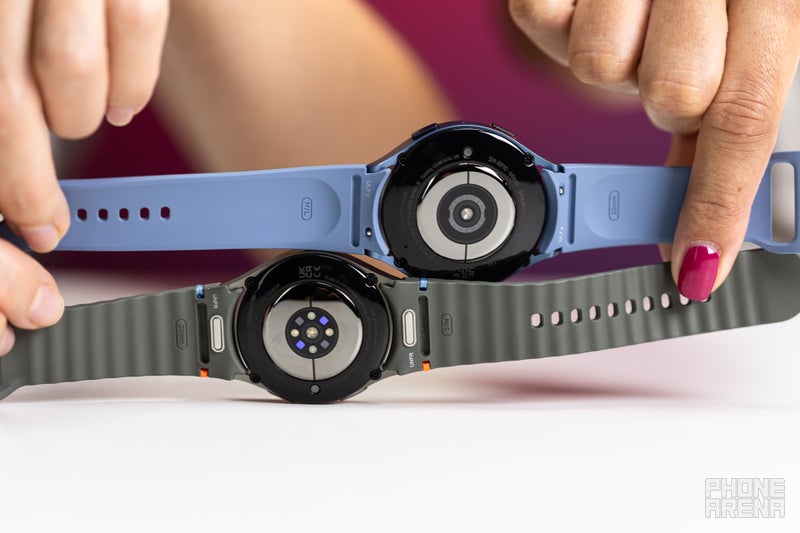
















Things that are NOT allowed: